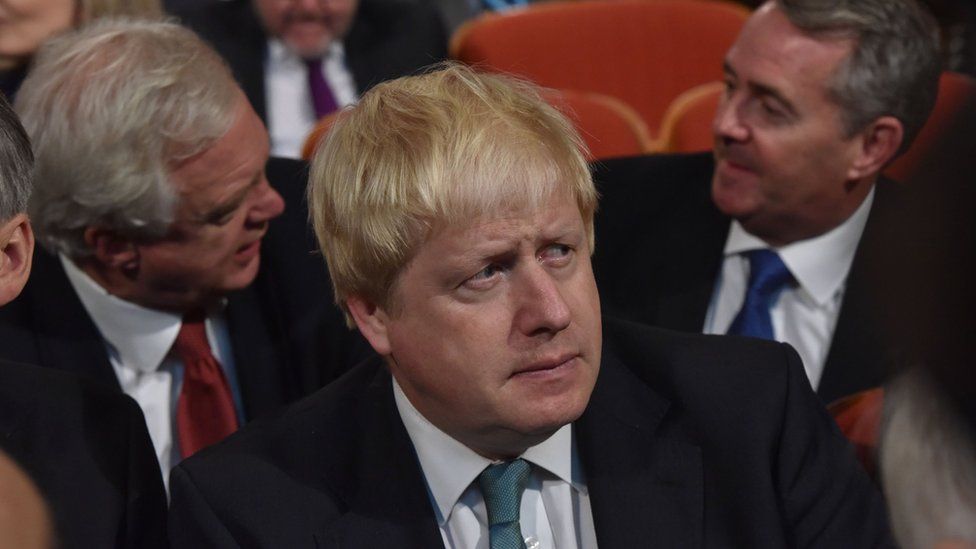Brexit: Johnson, Davis and Fox push agenda on three continents
- Published
- comments

Senior cabinet ministers will push the UK's Brexit agenda on three different continents later.
International Trade Secretary Liam Fox will travel from the US to meet Mexican counterparts to discuss trading relationships.
Foreign Secretary Boris Johnson is on a two-day tour of Australia, saying post-Brexit trade is "top of the agenda".
And Brexit Secretary David Davis will hold private talks in Germany ahead of the next round of negotiations.
The globetrotting by the three ministers - dubbed the "three Brexiteers" for their role in backing a Leave vote - comes amid increased scrutiny of the opportunities and challenges facing Britain in terms of negotiating free trade agreements with other countries once it leaves the EU.
No deals can be done until withdrawal in March 2019 but the UK has established a series of inter-ministerial working groups in the US and Australia to discuss the way ahead while also signalling to other countries, such as New Zealand, that they will be "near the front of the queue".
US President Donald Trump has said a deal with the UK could be "big and exciting" in terms of jobs, accusing the EU of a "very protectionist" stance towards America.
The EU has insisted Brexit talks will only be held by the European Commission, and the Department for Exiting the European Union confirmed Mr Davis' talks with officials in Germany would be private.
Brussels has also made clear that trade talks between the UK and the EU must wait until other issues, including the status of expats and any "divorce bill" to be paid by the UK, have been settled.
The role of the European Court of Justice has emerged as a stumbling block to a deal on citizen's rights, despite both sides insisting that they want to come an arrangement.
The UK is seeking a "comprehensive free trade deal" with the EU after Brexit to replace its membership of the common market and customs union.